Research in MCB Department Continues During COVID-19 Pandemic
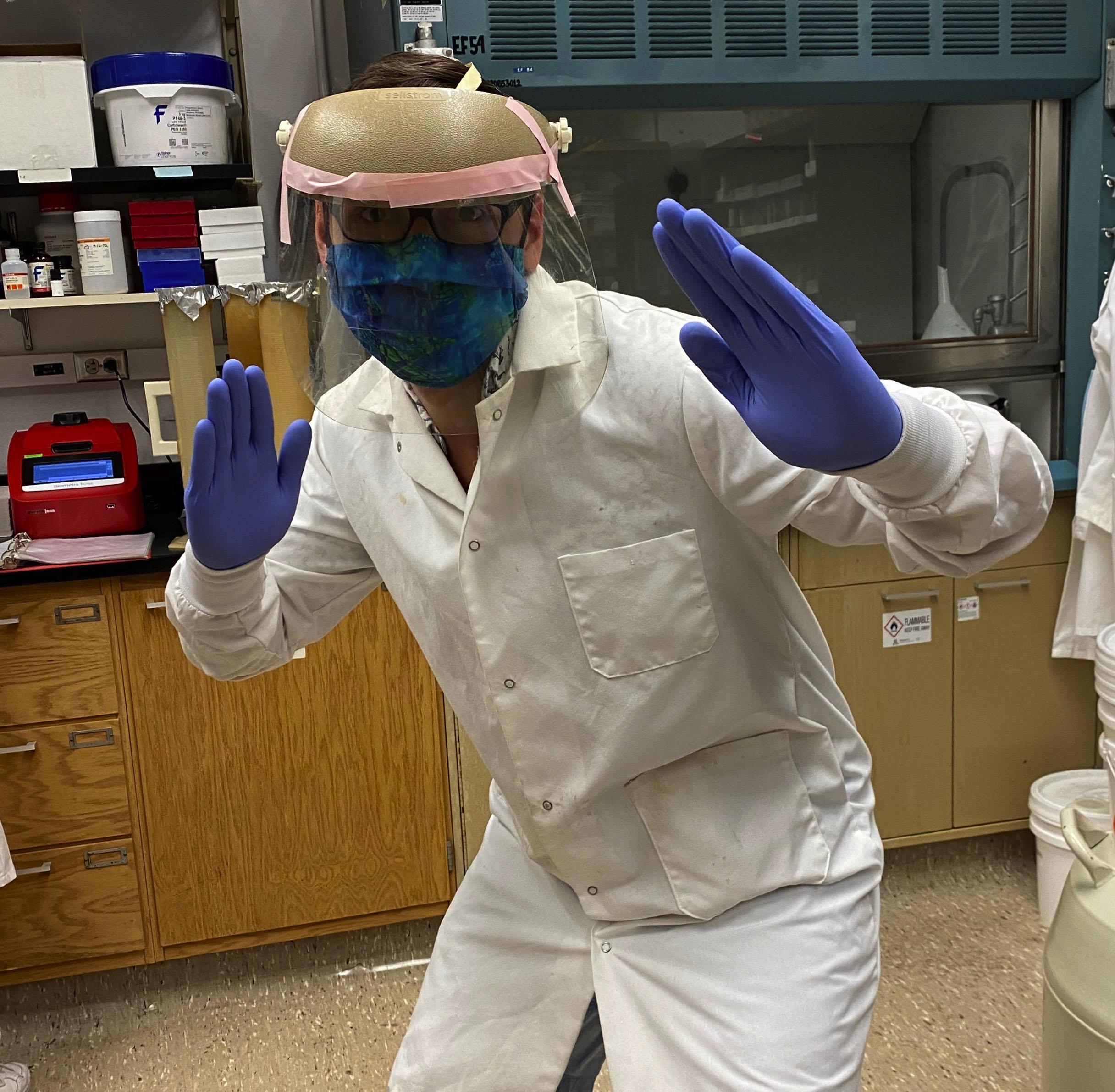
Ben Atwell, PhD candidate in The Schroeder Lab, doing battle with COVID-19.
While procedures and protocols have changed with the pandemic, the work of scientists in MCB continues! Following University and CDC guidelines, MCB science labs that require in person work have adapted to the guidelines.
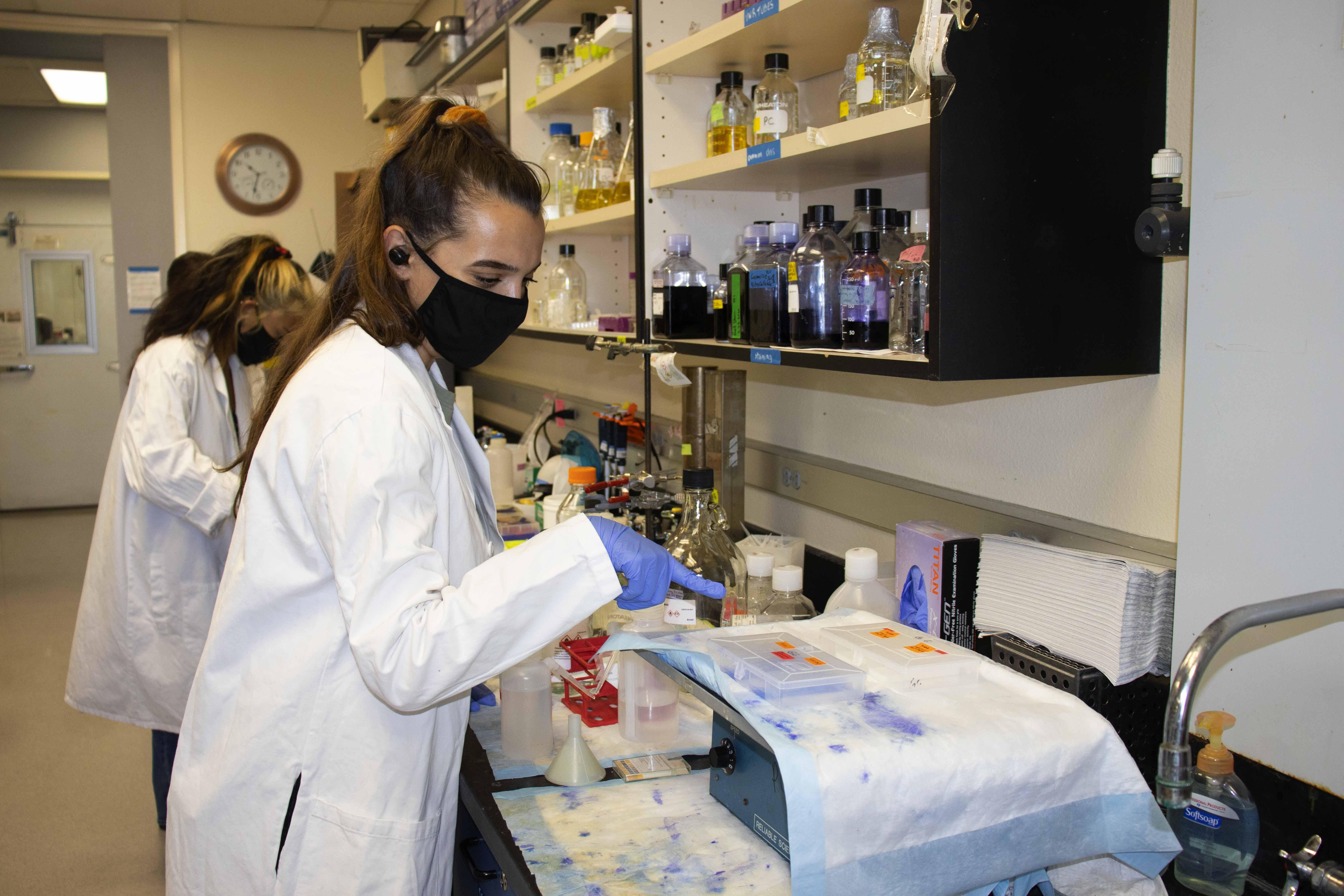
The Charest Lab studies how cells migrate in response to external chemical cues (chemoattractants), a process (chemotaxis) that is important to normal physiology and that is also implicated in the onset and progression of diseases such as cancer metastasis.
The Charest lab originally slowed down significantly, staying opened only to care for cell lines and to allow graduating students to finish their work. They then slowly ramped up their research again during the summer, but using staggered schedules, distancing measures, increased sanitizing procedures, and wearing masks. UBRP students joined the lab in July to start their internships and in June-July, they remotely hosted four high school KEYS interns that performed online and computational research projects. It’s been quite an adventure, but we are making it work!
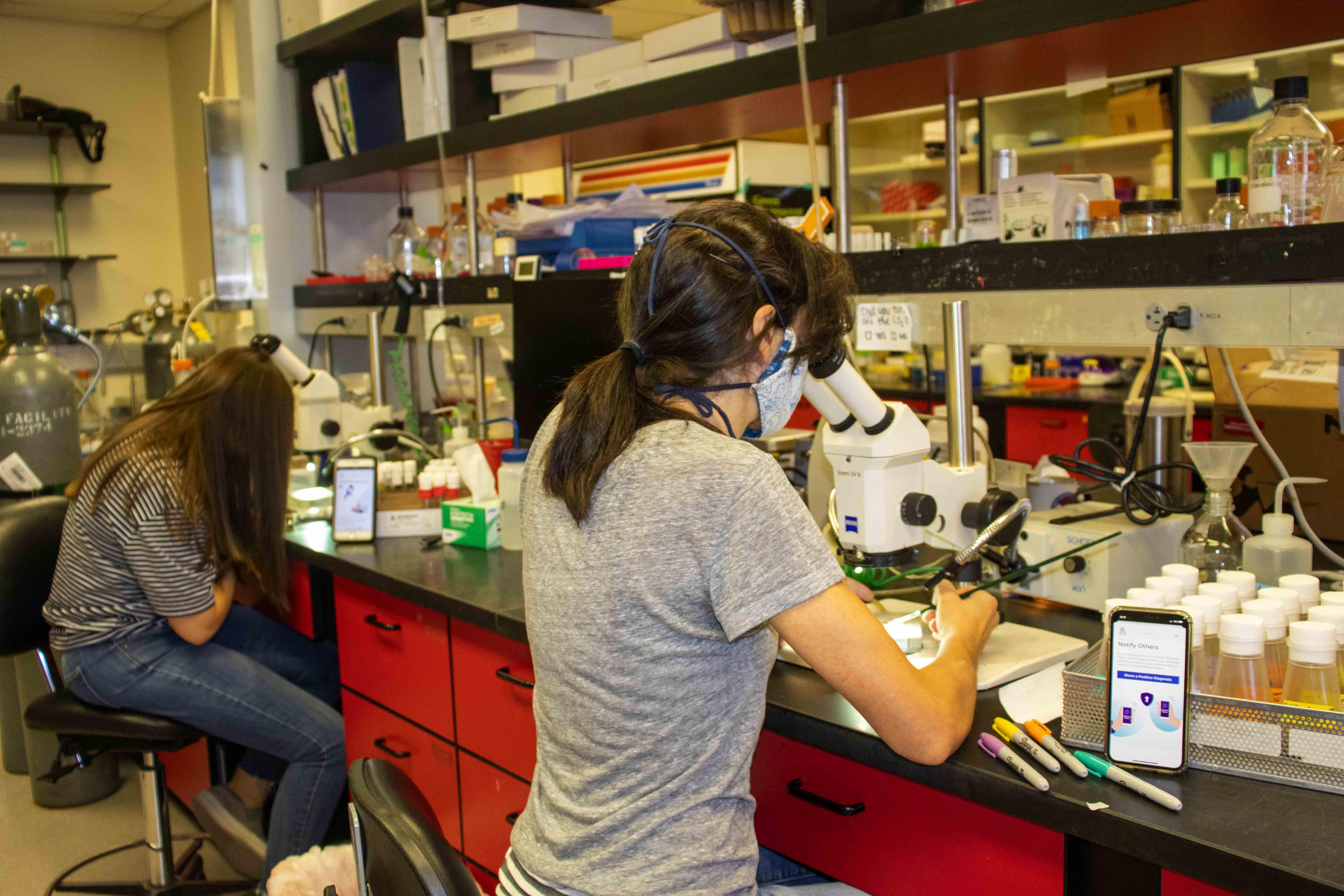
The Zarnescu Lab researches the various steps in RNA processing including transport and translation during normal development and aging of neurons, as well as during the onset and progression of disease.
The Zarnescu lab responded to COVID-19 by restricting operations to keeping their little and awesome Drosophila alive and finishing up a few experiments for manuscripts close to submission. They subsequently ramped up operations, gradually, to ensure everyone’s safety while also keeping students on track for graduation. Between wearing fun print masks (some of which were made by one of ZLab student’s mom), distancing and working remote or in person, in shifts, we have been able to stay safe and engaged.
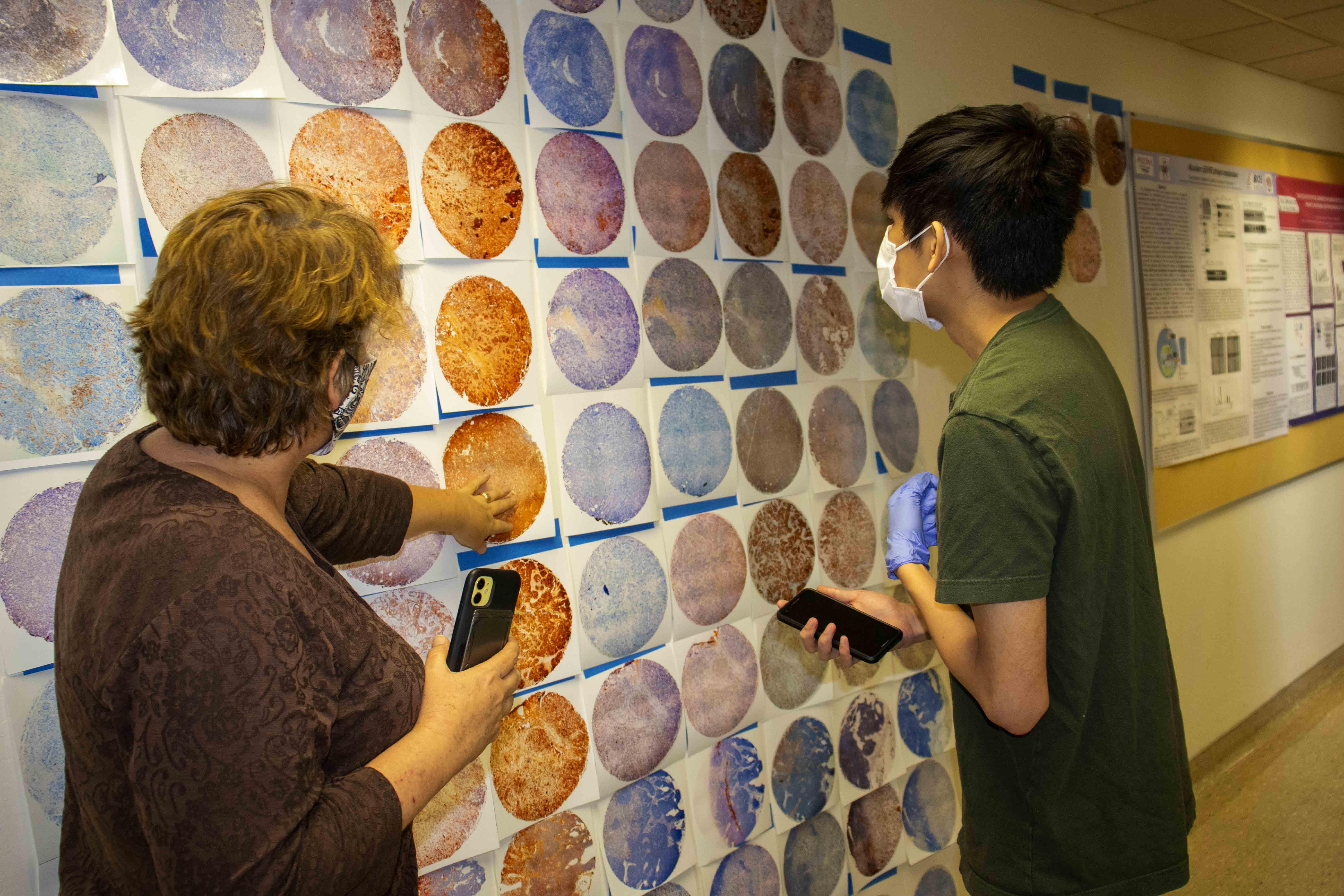
The Schroeder Lab's primary focus is on studying metastatic breast cancer, both Triple-Negative/Basal and HER2 positive subtypes.
The Schroeder Lab continued with its research throughout the academic shutdown initially to maintain its research mice colonies and cell lines. In the first weeks of the pandemic, scientists had to learn to adjust to modified work schedules, physically distanced workspace, and the art of using a microscope with a face mask in place. As restrictions eased, they are back to their full complement of researchers but are continuing to hone their PPE skills over the obstacles of face masks and fogging glasses.
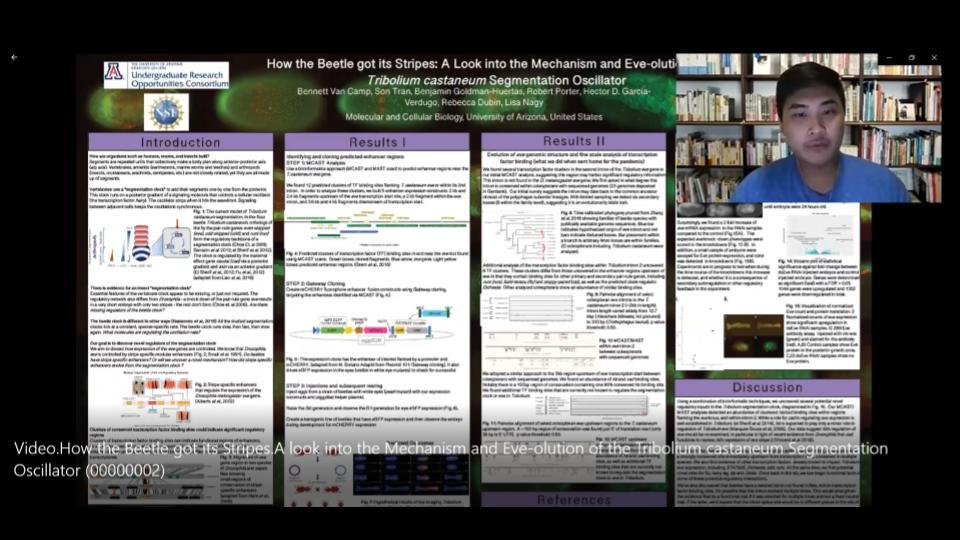
The Nagy Lab explores the genetic basis of morphological diversity
The Nagy Lab beetle colony maintenance continued, maintaining growth of transgenics. In the summer, students made three posters from the lab to present at the Annual Society for Developmental Biology Conference, with accompanying 5 min videos.
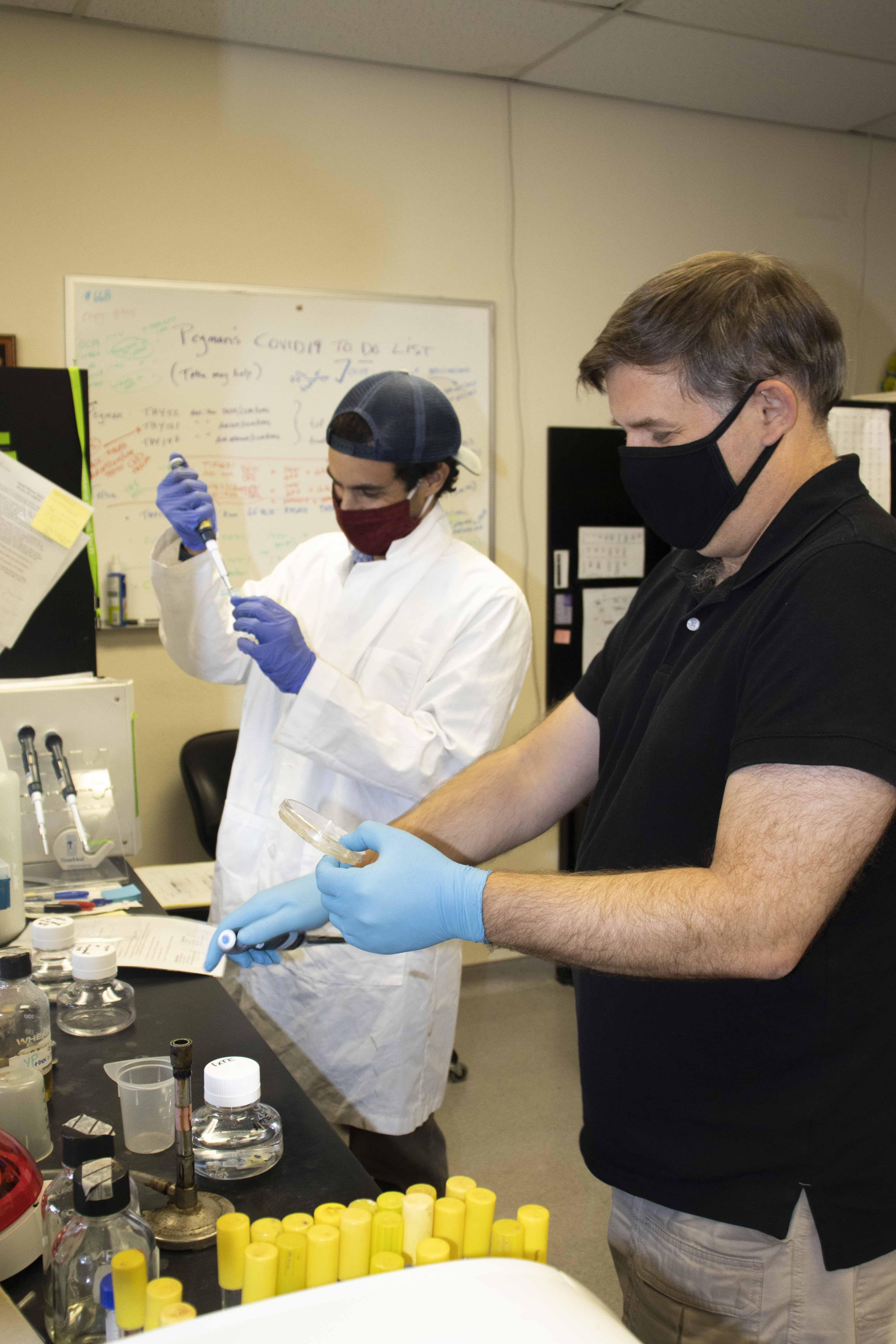
The Bolger Lab is investigating how cells respond to stress and the role this process may have in cancer growth and aging
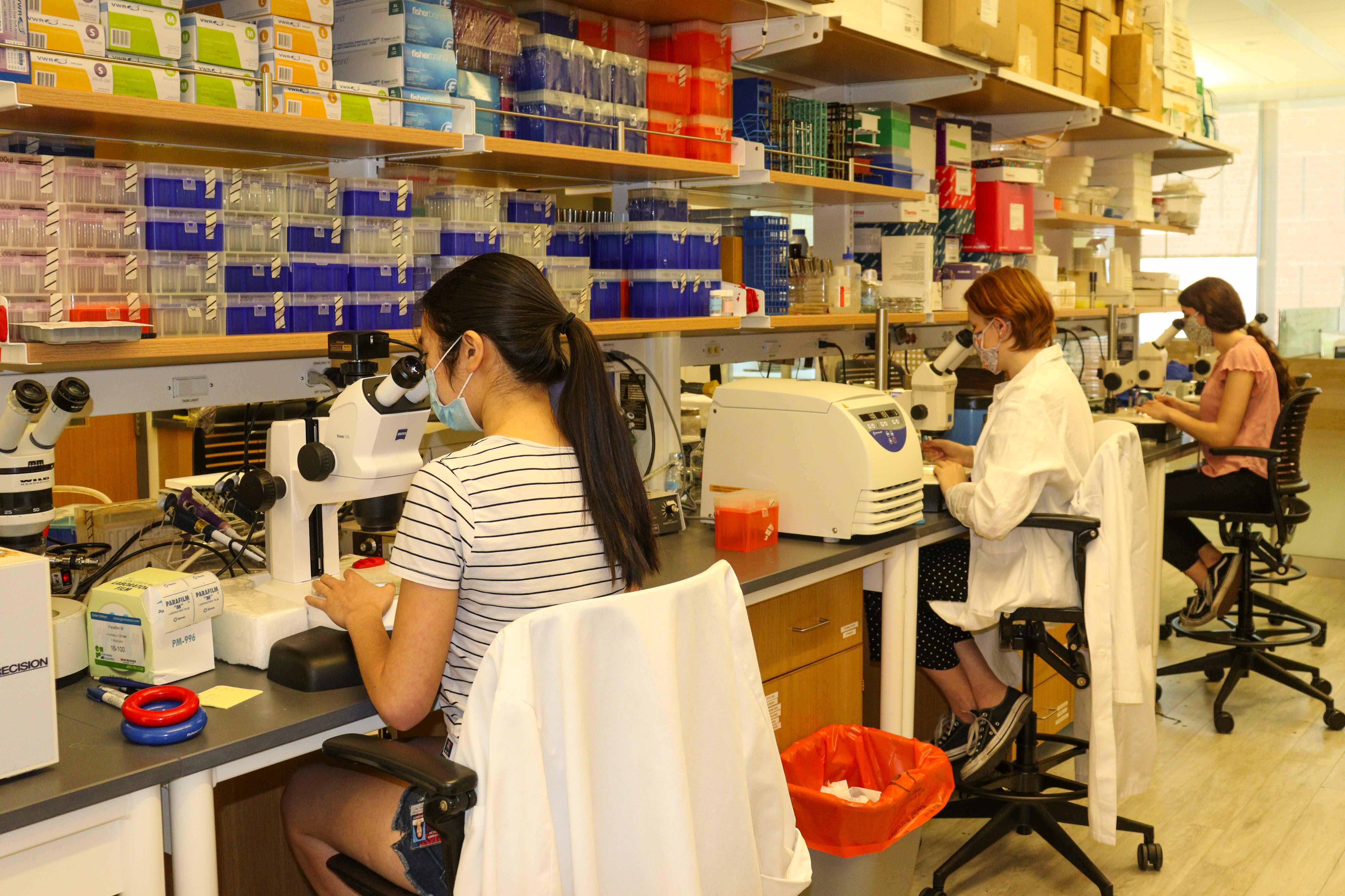
The Sutphin Lab's goal is to understand the molecular basis of aging, and leverage this understanding to develop new clinical interventions to extend healthy human lifespan and treat age-associated disease.
The Sutphin lab uses roundworms and mice to study the biology of aging. In early March, we largely shut down our roundworm research but remained open for critical experiments and to maintain our ongoing mouse projects. Mice typically live 2-3 years, and many aging experiments follow individual animals throughout their entire lifespans, with carefully timed experiments designed to capture key aspects of the aging process. While our research activities were reduced, we prioritized maintaining a safe work environment, changing to rotating work shifts, wearing masks, and maintaining physical distance in the lab. Most of our lab members spent their time remotely digging into the scientific literature to improve our understanding of the specific aspects of aging that we study. We are now ramping up, working toward a more normal research pace while maintaining the meticulous hand-washing, bench scrubbing, face-covering, and social distancing.
While some of the research being conducted in MCB requires in person lab experiments, other work is better suited to scientists working virtually. For example, in the Gutenkunst and Padi labs, their research is computational and does not require a wet lab. Their work continued, with lab meetings conducted virtually through zoom meetings.
While faculty, staff and students have been innovative, finding ways to continue their research, it hasn’t been without difficulties. Dr. Ryan Gutenkunst summed it up with this “In my lab we mostly carried on virtually. I think the main issue was the overall higher level of anxiety that everyone is feeling.” We are grateful for the passion, commitment and flexibility that abounds and look forward to continuing the research that the MCB department is known for!

